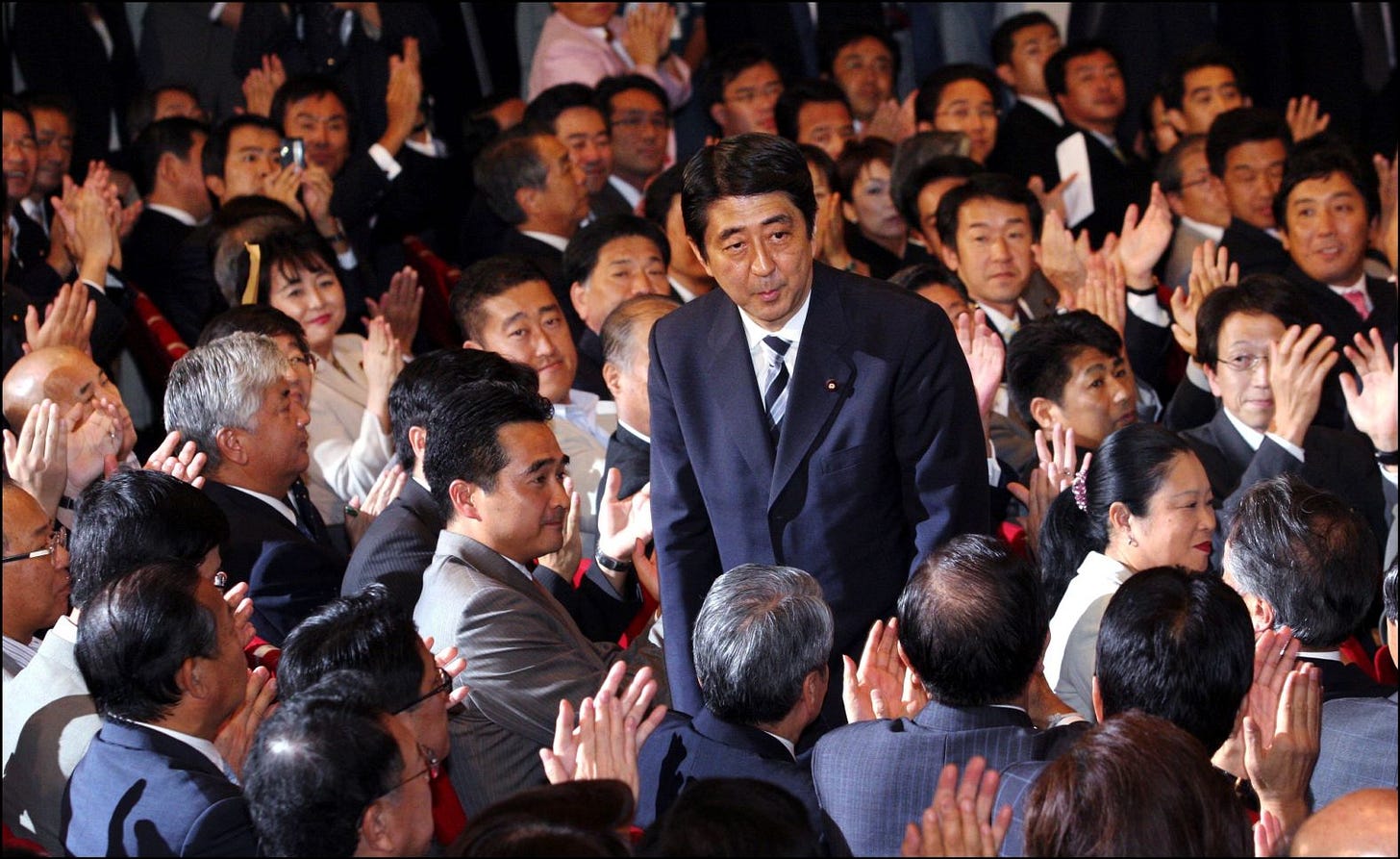Shinzo Abe: Architect of U.S.-Japan Alliance
A Legacy of Friendship, Collaboration, and Enduring Bilateral Ties.

Introduction: The global community was jolted on July 8, 2022, Thursday evening by the shocking news of a rare shooting in Japan, resulting in the demise of the country's longest-serving prime minister, Shinzo Abe. This tragic event unfolded during a campaign event when at least two shots were fired, striking the former leader. As the world grappled with the shocking loss, early evidence suggests that the homemade nature of the gun used in the attack raises questions, considering Japan's reputation for having some of the strictest gun laws globally.

Section I: The Tragic Event Unfolds
Former Japanese Prime Minister Shinzo Abe, 67, was delivering a campaign rally speech when bullets abruptly struck his chest and near his neck, leading to his tragic death. The suspect, Tetsuya Yamagami, 41, who was subsequently arrested and confessed to the shooting, brandished what appears to be a homemade gun during the assassination.

Section II: Global Reactions and Mourning
Subsection 2.1: Brazilian Leader's Unique Mourning Gesture
Brazilian President Jair Bolsonaro expressed "outrage and sadness" over Abe's killing, ordering three days of national mourning in Brazil. Bolsonaro, acknowledging Abe as a "brilliant leader," condemned the act as an "unjustifiable cruelty" that demands punishment. Brazil, home to a significant Japanese population, mourns in solidarity.
Subsection 2.2: International Leaders Express Condolences
World leaders, including Secretary of State Antony Blinken, expressed deep condolences for Abe's death. Blinken praised Abe's global leadership, emphasizing his vision for a Free and Open Indo-Pacific, elevating alliance cooperation to new heights. The international community stands united in mourning the loss of a statesman.

Section III: Shinzo Abe's Enduring Alliance with the U.S.
Shinzo Abe's relationship with the United States is a cornerstone of his political legacy, characterized by unwavering friendship and collaboration. As the longest-serving prime minister in post-World War II Japan, Abe played a pivotal role in strengthening the bond between the U.S. and Japan.
Subsection 6.1: Strengthening Bilateral Ties
Abe's tenure witnessed a deepening of economic and security ties between the U.S. and Japan. His commitment to a "Free and Open Indo-Pacific" aligned with the strategic vision shared by both nations, fostering cooperation on regional and global challenges. This shared commitment elevated the alliance to new heights during a period of geopolitical shifts.
Subsection 6.2: Collaboration with U.S. Presidents
Throughout his political career, Abe worked closely with U.S. presidents, establishing a robust partnership that transcended political transitions. His collaboration with former President Barack Obama, marked by joint efforts to reinforce the U.S.-Japan alliance, was particularly notable. Together, they navigated regional security challenges and addressed shared economic interests.
Section IV: Impact on Japan's Political Landscape
Subsection 3.1: Outpouring of Sympathy from U.S. Congress
Members of the U.S. Congress conveyed sympathy and shock over the assassination of Shinzo Abe. As the longest-serving prime minister post-World War II, Abe's legacy as a leader who strengthened U.S.-Japan relations is fondly remembered. Colleagues, including Sen. Bill Hagerty, expressed condolences and recognized Abe's historical contributions.
Subsection 3.2: Taiwan's Tribute to a Lost Friend
Taiwan President Tsai Ing-wen acknowledged Abe's importance as an international leader and close friend. Describing the loss as significant for both the international community and Taiwan, President Tsai emphasized shared democratic values and condemned the violent act, reflecting on the impact on the two democratic nations.
Section V: Reflections from Global Leaders
Subsection 4.1: Obama's Tribute to a Partner in Alliance
Former U.S. President Obama mourned the loss of his "friend and longtime partner Shinzo Abe." Reflecting on their collaboration during Obama's second term, he highlighted Abe's dedication to Japan and the alliance between the two nations. The former president expressed shock and sadness, sending condolences to Abe's family and the people of Japan.
Subsection 4.2: Trump's Prayer for a True Friend
Former President Donald Trump, a close friend of Abe, offered prayers and expressed devastation over the shooting. Calling Abe a "truly great man and leader," Trump conveyed his deep friendship with the former prime minister, emphasizing the impact on both Japan and the United States.

Section VI: Unprecedented Nature in a Gun-Restricted Nation
The shocking nature of the shooting reverberates due to Japan's stringent gun laws, making gun deaths rare. With the suspect reportedly using a homemade shotgun, the incident raises questions about the effectiveness of these laws. In contrast to countries with more relaxed gun regulations, Japan's approach to firearm control is highlighted by this tragic event.
Conclusion: Shinzo Abe's legacy is one of unwavering dedication to Japan and its people, characterized by a profound commitment to strengthening alliances, revitalizing the economy, and promoting stability in the region. As Japan's longest-serving prime minister, Abe's leadership left a lasting impact on the country's political landscape and its standing in the world.
His vision for a "Free and Open Indo-Pacific" not only deepened ties with key allies like the United States but also underscored his belief in a rules-based international order. Abe's resilience in the face of adversity and his ability to overcome challenges with grace and determination will be remembered as hallmarks of his leadership. He leaves behind a legacy of service, diplomacy, and a deep love for his country that will continue to inspire generations to come.




